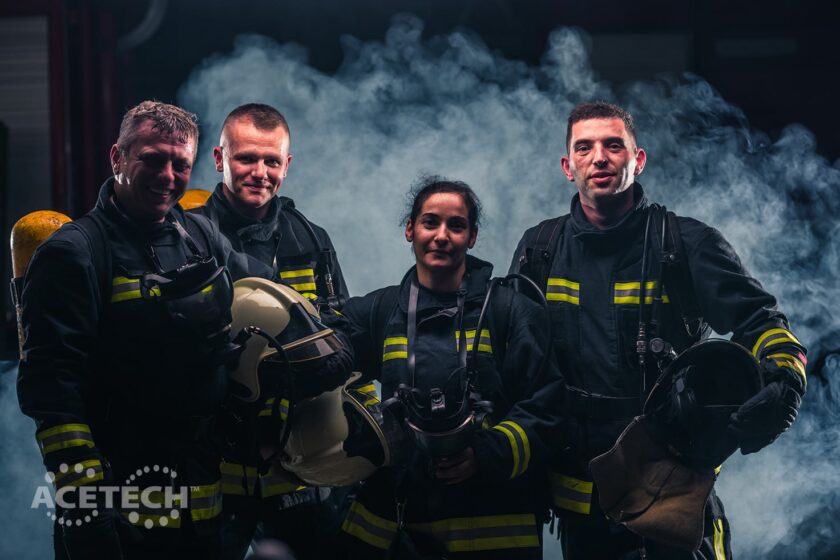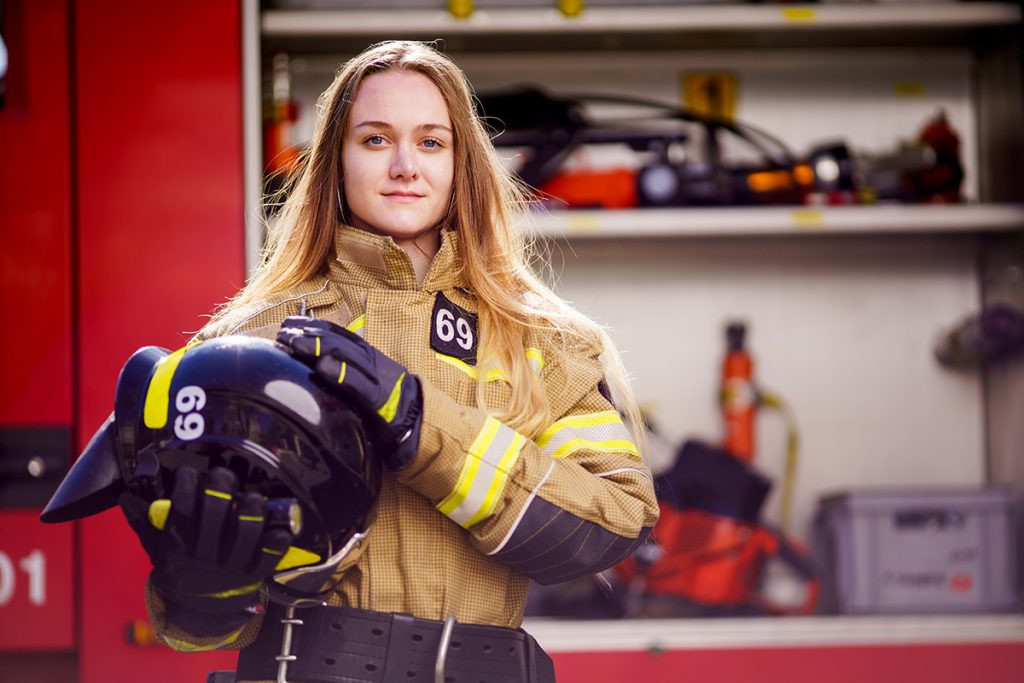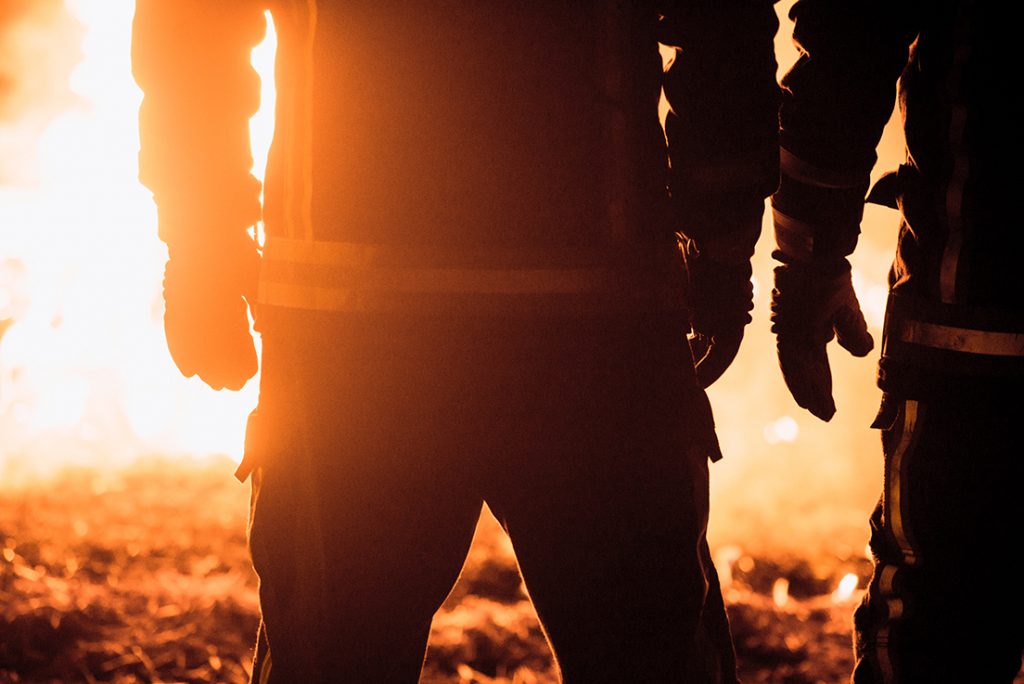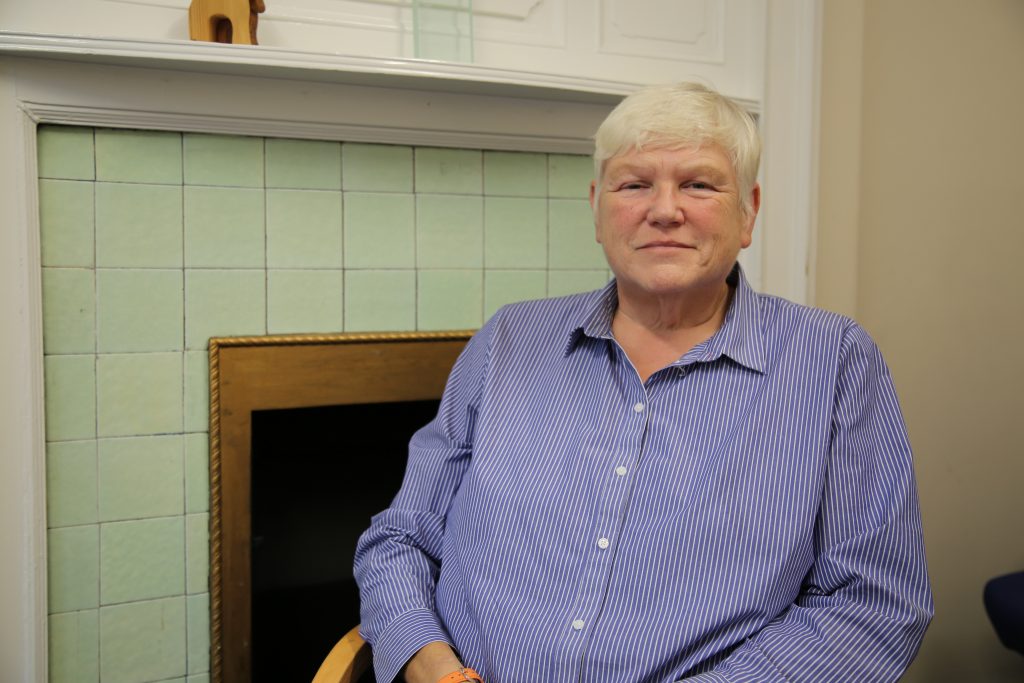
Words: Dr Anne Scoging, Head of Psychological Services, London Fire Brigade.
In the three years since the Grenfell Tower fire, everyone at London Fire Brigade has come to understand our need as an organisation for high-quality, readily-accessible mental health support. Some 20 percent of brigade personnel that attended the fire have since received trauma-focused counselling from our in-house service, to help resolve the trauma responses many encountered, including Post Traumatic Stress Disorder (PTSD).
We learned a lot from the Grenfell Tower Fire about the impact of major incidents on a fire and rescue service. As an organisation, we responded by developing our existing counselling service into a much larger team with enhanced trauma specialism. We worked to increase mental health awareness among all our colleagues and made it easier to access our mental health support services. We worked to ensure that our expanded team reflects the diversity of our workforce and the communities in which they live and work. This July, London Fire Brigade launched its diversity and inclusion commitment, Togetherness Strategy, one of the objectives emanating from the Transformation Delivery Plan – itself a result of our acknowledgment, after the Grenfell Tower fire, that we must become a dynamic, forward-looking organisation of fully engaged people at the centre of the communities we serve, adapting to London’s changing needs.
The London Fire Brigade Counselling and Trauma Service (CTS) now employs 11 counsellors to support all our colleagues, from non-operational to frontline and at Control. Our service is voluntary and confidential, and anyone can self-refer. About 10 percent of our clients are referred to us by their manager or our Occupational Health team, with the client’s permission. We make access to CTS as easy as possible, with colleagues able to phone or e-mail us. It’s important that initial contact with CTS is met with warmth and professionalism because we know how hard it can be to ask for help. And we publicised the service through the brigade’s intranet and our internal publications, sending posters to fire stations, our Control centre and our offices.
In expanding CTS over the last three years, we have developed a team that reflects the diversity of the whole organisation in terms of gender, ethnicity, culture, age, sexuality, and life experience. Our team now has this representation among the counsellors. We have recruited staff who bring with them lots of very different life and professional experience from a range of backgrounds, including counselling in NHS primary care, in mental health settings, and Employee Assistance Programmes specialising in telephone and online counselling. It’s important that all our counsellors are trained to a high standard, so we require them to come to us as already BACP-accredited with at least five years’ post-qualification experience working with clients who present trauma issues, especially in the use of techniques recommended by the National Institute for Clinical Excellence (NICE) in this work that CTS uses – for example, trauma-focused Cognitive Behavioural Therapy (CBT) and Eye Movement Desensitisation and Reprocessing (EMDR). We have ensured that the skillset and level of experience of our counsellors meets the demands of our client base and the often complex range of concerns our clients bring to us, particularly after the Grenfell Tower fire, when the incidence of trauma issues rose significantly. The service is professionally accredited by the British Association for Counselling and Psychotherapy, ensuring we operate to the highest standards of good practice in all areas, including the management, supervision, support and continuous training of our counsellors. Our achievement in this work was reflected in June this year when I jointly won the inaugural Dany Cotton Inspiring Leader award at the Women in the Fire Service Awards. This accolade recognised that we have created a truly inclusive, responsive CTS team.
Colleagues coming to CTS typically bring a whole range of issues relating to their work and home lives. We record all of a client’s presenting issues, a mixture of physical and mental health issues, and general life stress, with anxiety and depression most commonly seen. Clients who see a counsellor with work-related issues usually need assistance dealing with adverse trauma responses soon after attending a critical incident, presenting the symptoms of PTSD and problems with their work-life balance. Where we see non-work, personal issues, most of those centre around relationship issues with a partner, a bereavement, a divorce or separation. These are everyday stress points for most people in any walk of life, but we know there are particular aspects of working in a fire and rescue service that can increase the risks of these developing into mental health problems. The emotional impact of being a firefighter is shared by frontline staff within fire stations, as the unique nature of their work creates tight-knit teams who talk things through together after a response. The CTS provides an outside ear, offering expertise in this level of trauma, with the specialised techniques to support individuals managing the impact of their work. The CTS provides professional support following attendance at any critical incident, offering counselling and treatment for anyone who has an adverse trauma response.

Between 2019 and 2020 so far, seven percent of the cases CTS took on were colleagues presenting PTSD; many already had a formal diagnosis from a statutory psychological assessor, but all presented to us with varying degrees of trauma-related symptoms, including over-alertness or hyper vigilantism, intrusive thoughts, flashbacks, nightmares, avoidance of anything or anyone that can trigger adverse reactions, and a numbing of emotions. Most often, firefighters come to us with complex PTSD having attended many critical or major incidents during the entirety of their service. They will have recently attended a potentially traumatic incident, which took on significant meaning for them – for example, a casualty reminded them of a close family member. Sometimes there are underlying stresses going on at the time they attended this traumatic incident, such as a divorce, which might make them more susceptible to trauma and less able to complete the normal processing of traumatic events the week following an incident. I have come to think of such an incident as representing the client’s ‘perfect storm’, the thing that pushes them from highly stressed into PTSD. This can prompt them to realise they need help to process built-up trauma from attending incidents over the years, trauma that has culminated in experiencing active symptoms of PTSD.
When firefighters present with complex PTSD, we often find that personal traumas, often from their early years, have contributed to it, including childhood neglect or abuse. Our job as counsellors is to gently unpick these issues one by one, so clients can reprocess and resolve them. We first help them deal with any co-morbid issues such as anxiety and depression, which often co-exist with PSTD, and then treat the trauma using our range of therapeutic techniques and coping strategies, from CBT and EMDR to mindfulness, relaxation, and specific treatments for nightmares and anxieties.
What became apparent after the Grenfell Tower fire was the need to develop brigade-wide initiatives to inform staff about their need to monitor and be mindful of their own and others’ mental health, and tackle any persisting stigma around that within the organisation. The mantra ‘It’s OK not to be OK’ was adopted, and our most senior officers showed leadership by talking about the need to respect and nurture mental health. My team supported the formation of United Minds, a mental health support group, by a group of informed, concerned and enthusiastic colleagues from around the brigade. This group has been well received and is creating a highly visible, dynamic presence in the organisation.
In order to increase the help available to colleagues, CTS initiated a scheme to recruit colleagues to be trained as Mental Health First Aiders (MHFAs), setting out clear role descriptions, remits and recruiting protocols. Training offered by Mental Health First Aid England had just started as London went into lockdown due to the Coronavirus pandemic, and will recommence later this year. We aim to build a team of trained MHFAs dispersed in watches and teams across the whole organisation, an accessible, visible and friendly first port of call for anyone who is struggling or needs to talk. They are trained to listen empathically, offer support where they can and direct people to appropriate resources, including CTS.

Our MHFAs have already provided vital psychological support to colleagues involved in the brigade’s part of the Pandemic Multi-Agency Response Team response to Coronavirus in London, assisting the London Ambulance Service and the Metropolitan Police. Frontline staff were detached to co-crew ambulances, alleviating a driver shortage during the spike in infections and deaths. We deployed our MHFAs proactively, to prevent adverse trauma responses to incidents officers may have encountered on these duties, including the cumulative effect of dealing with many deceased in any given shift. We instigated a system where officers undertaking these duties were regularly called by an MHFA or another volunteer drawn from the brigade’s frontline colleagues, to check on their wellbeing, directing them to CTS when appropriate, as well as offering supportive information. Our service then followed up with affected colleagues directly at the end of their detachment with a questionnaire assessing for trauma, anxiety and depression, offering counselling when high-scoring responses are detected.
Next, we are preparing to train selected MHFAs to become trauma support volunteers. They will be deployed directly to watches after attendance at potentially traumatic incidents, to complement and expand the work CTS currently does to prevent traumatic stress responses in our frontline staff. The talk of a ‘new normal’ for society at large when the Coronavirus pandemic finally subsides reflects a new normal for London Fire Brigade. We are forever changed by the Grenfell Tower Fire. Our collective experience assisting London’s communities in dealing with the pandemic demonstrated that we have learned from both situations to be more agile and responsive. From a mental health perspective, CTS is now geared up to help our colleagues manage the effect of trauma that characterises the work of London’s emergency services.

Dr Anne Scoging (left) is Head of Psychological Services at London Fire Brigade.
Read the full article HERE.